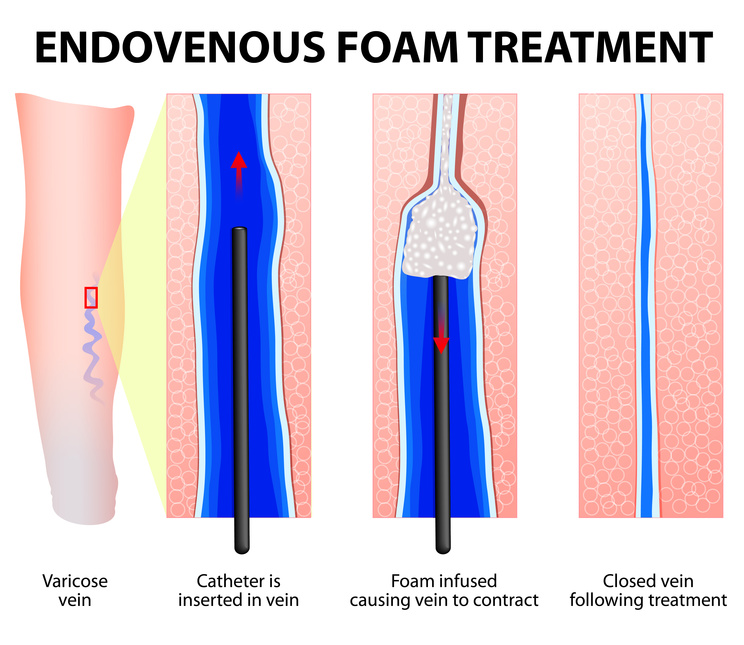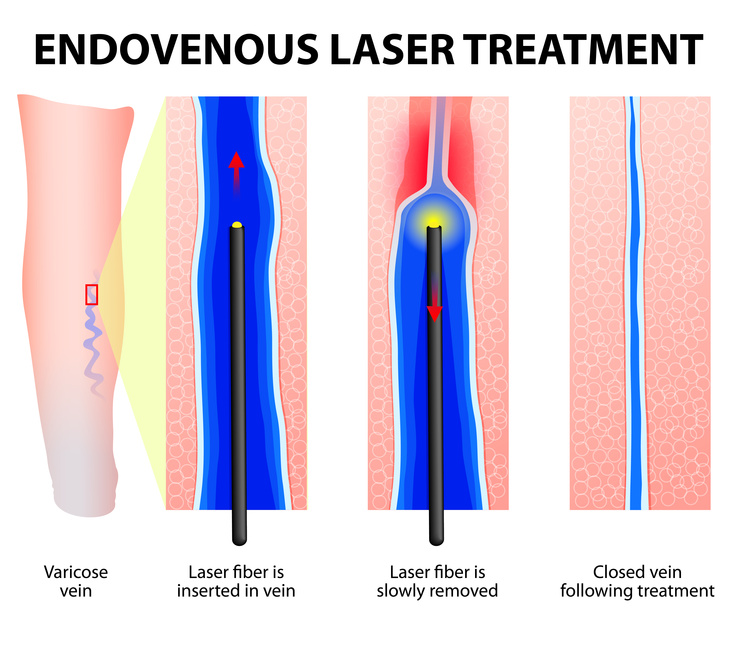The Primary Treatment
The primary treatments offered by Rostra Healthcare Ltd are endovenous ablation procedures. Endovenous ablation procedures have been performed around the world since 1999 and are now established as excellent and superior alternatives to the traditional surgical procedures performed for treatment of varicose veins.
Endovenous ablation procedures have received approval for use within the NHS by the National Institute for Health & Clinical Excellence (NICE) under clinical guidelines 168 (CG168).


Endovenous ablation procedures are quick, minimally invasive procedures that leave no scar, have a short and relatively pain-free post-operative recovery period, and are performed under local anaesthesia.
The treatments take less than half an hour and involve both a physical and an ultrasound examination to map the vein to be treated. The procedure will be carried out by one of the Rostra Healthcare Ltd Specialists who will also be an established NHS Vascular Specialist.
Walking immediately following the procedure is encouraged and normal daily activity can be resumed immediately. Patients may experience bruising and soreness for 3-5 days after the treatment. Pain is usually improved by walking or oral pain relief medications.
As with all medical procedures there are some potential side effects, fortunately with endovenous ablation procedures the reported complications are both infrequent and, mostly, mild.
The clinical team at Rostra Healthcare Ltd will discuss the possible complications of your treatment with you and the Specialist performing your procedure will also discuss these prior to your operation. You should ask any questions regarding any aspect of your treatment to any member of the clinical team.
In the majority of patients, endovenous ablation procedures will resolve both the symptoms of the varicose veins and also the unsightly veins that are visible in the thigh or calf.
In some patients however, it may be necessary to perform additional procedures to treat the remaining veins. The necessity for further treatment will be decided when you attend for a follow up out-patient appointment approx. 3 months after you undergo endovenous ablation procedures. As with the endovenous ablation procedure, any additional treatments will be performed under a local anaesthetic.
If additional procedures are required, these will usually consist of one or more injections into the remaining, visible veins in the thigh or calf. Very few patients will require a repeat laser procedure.

